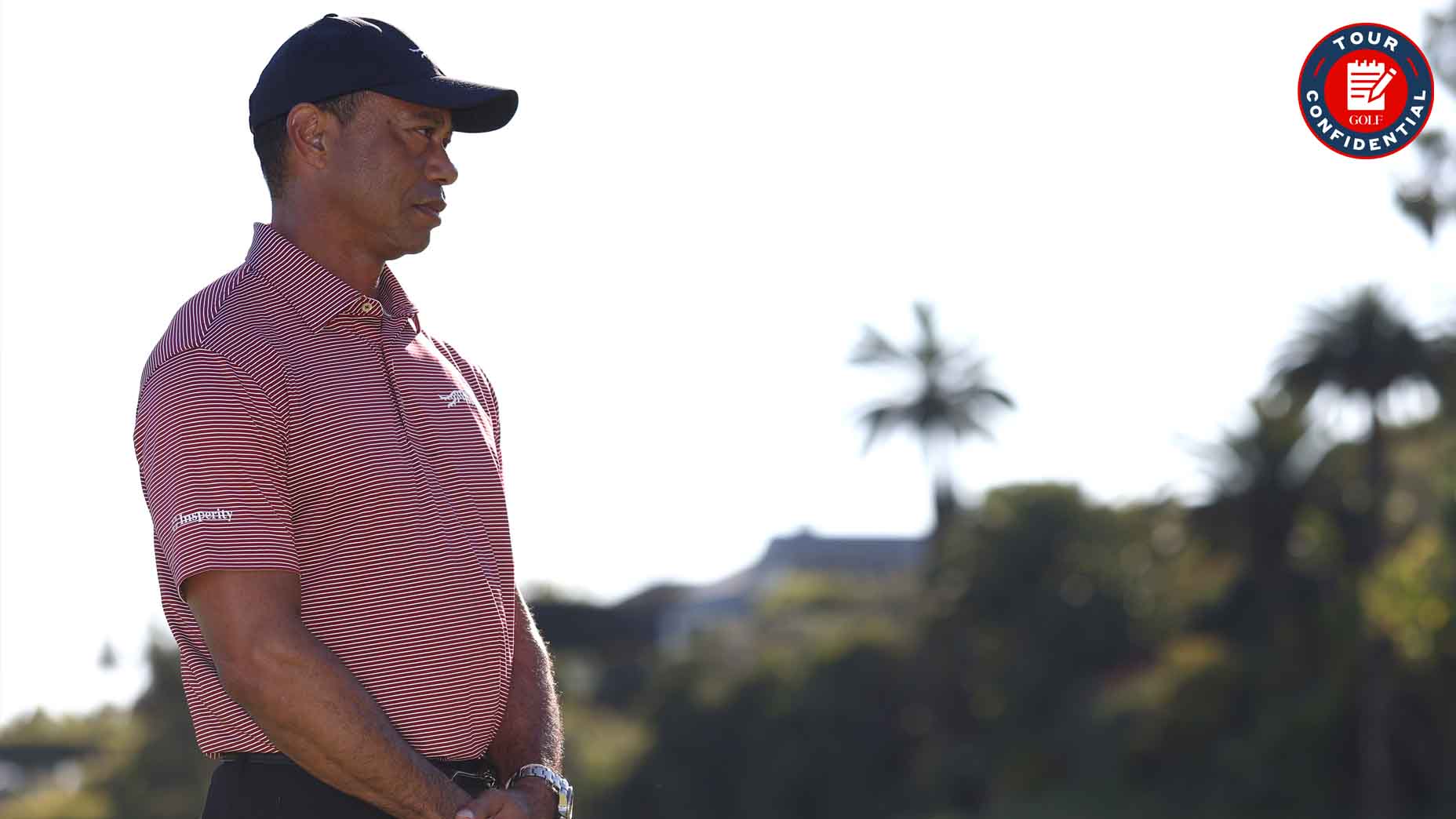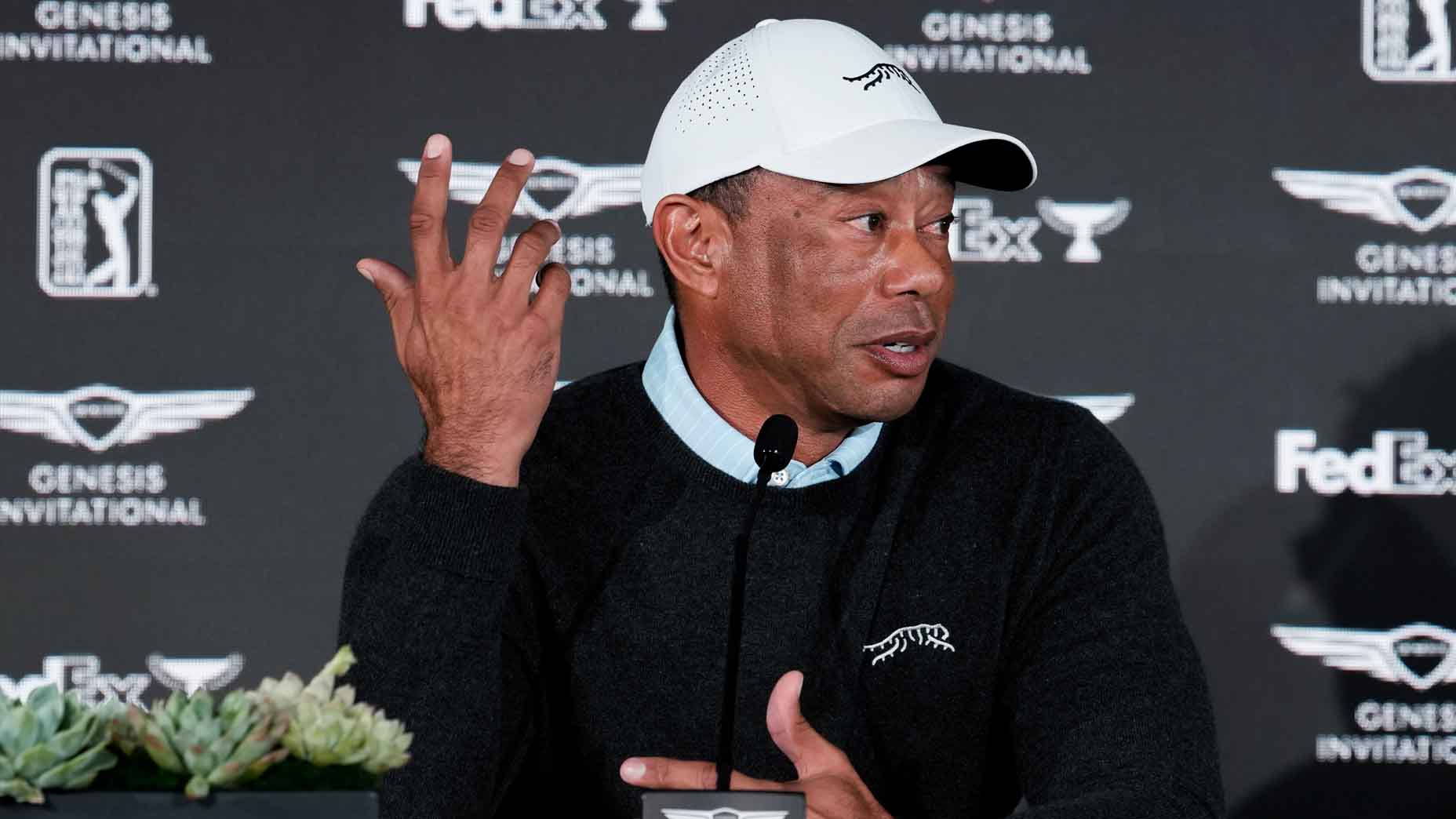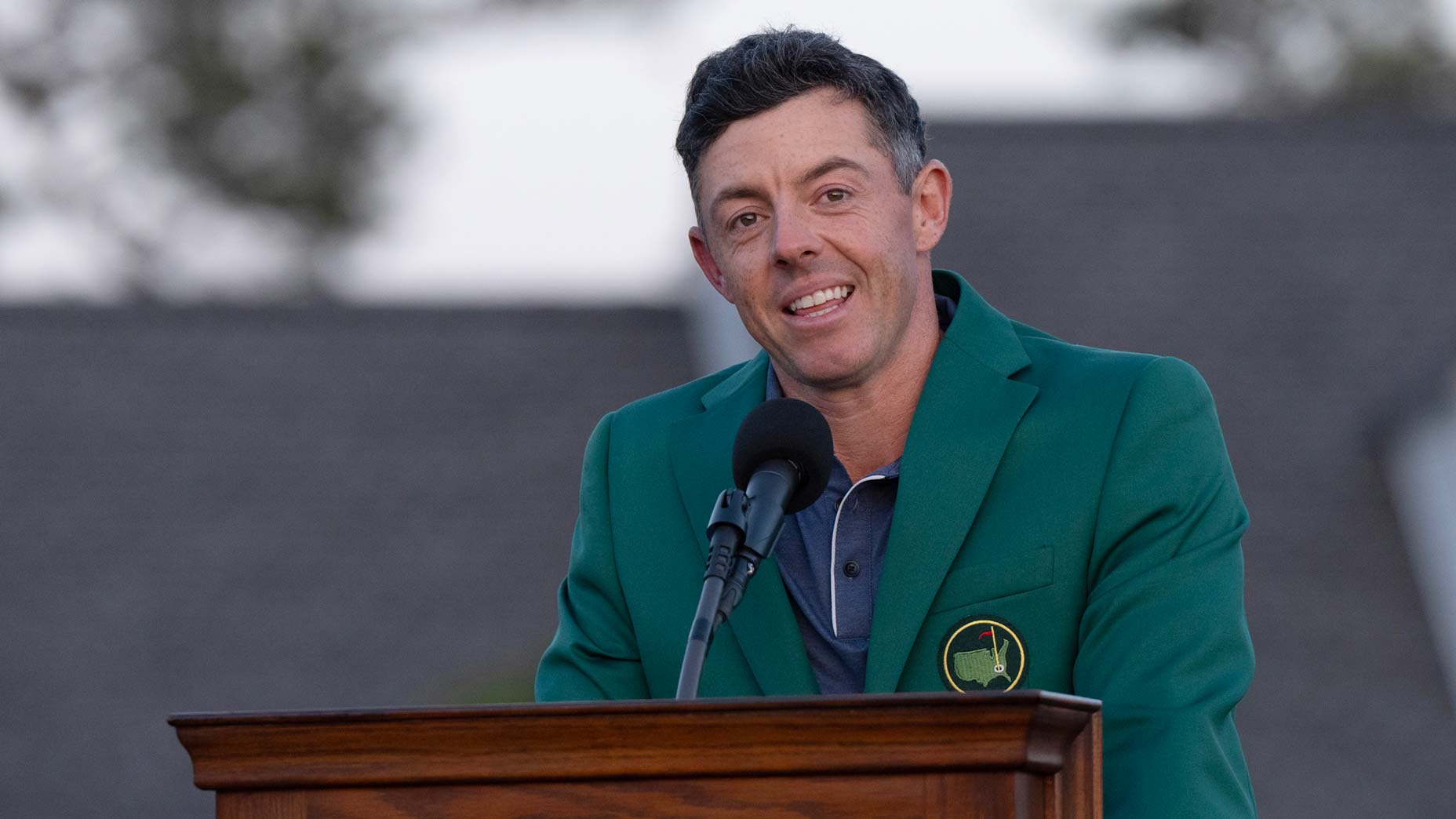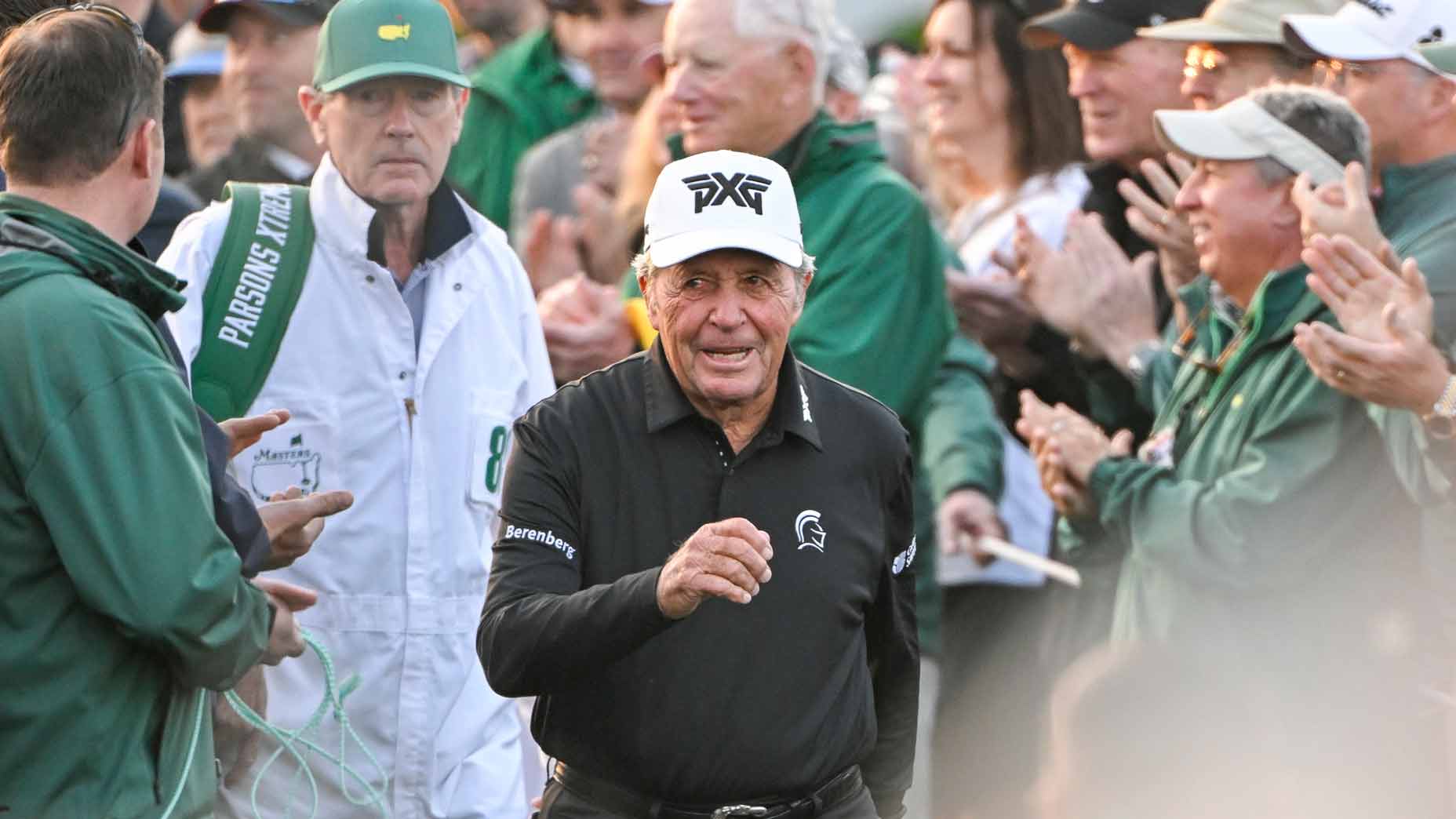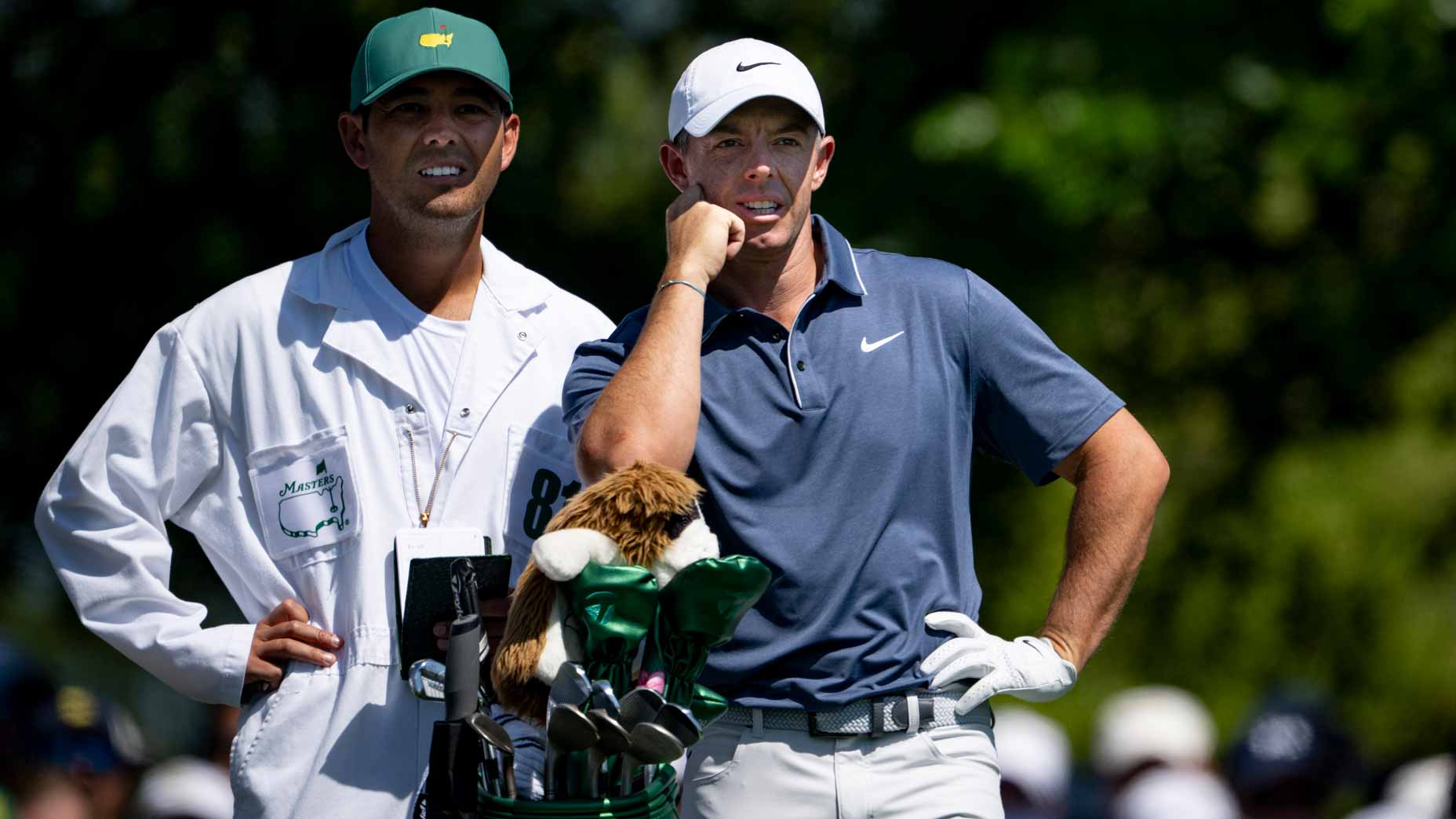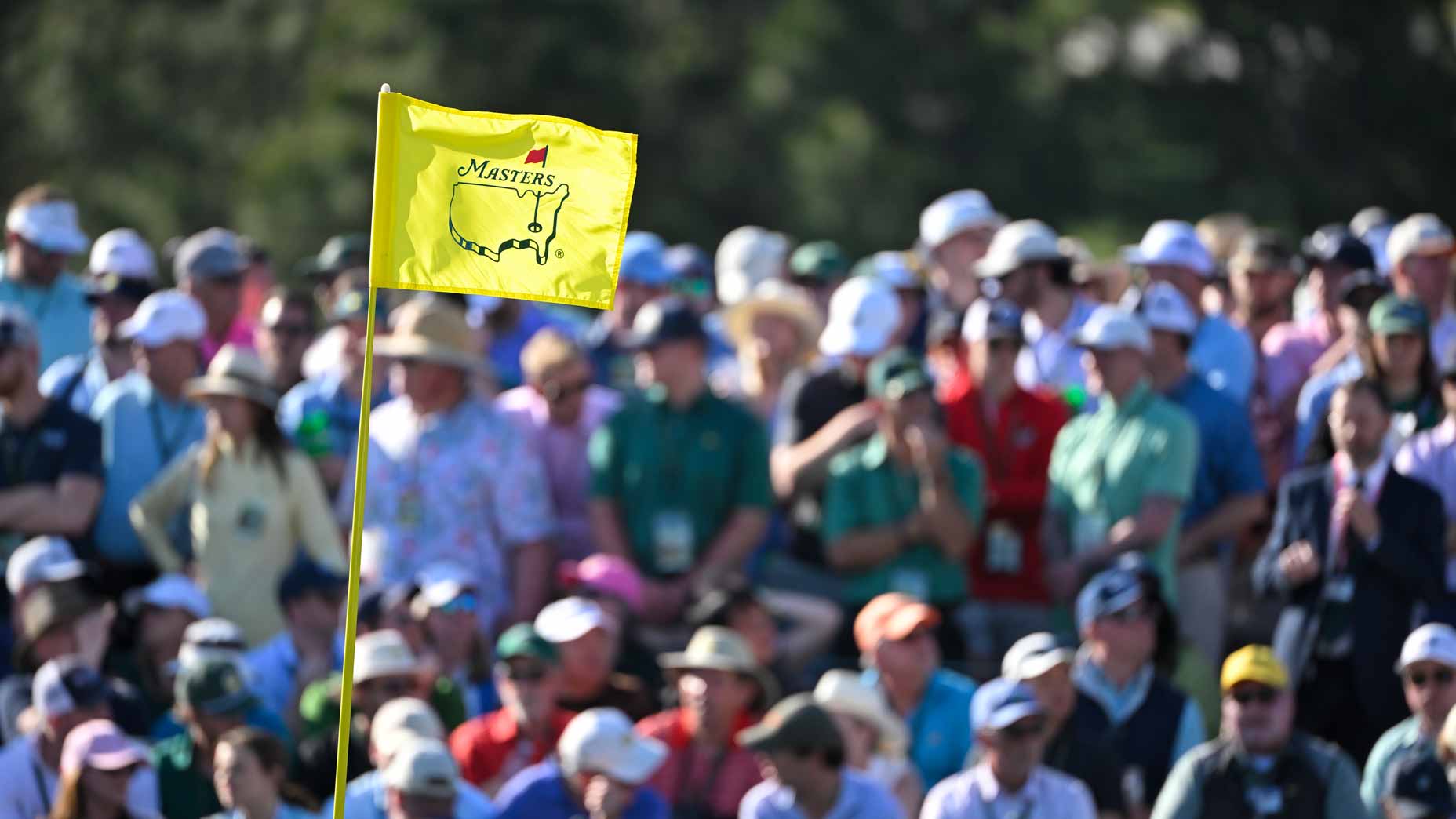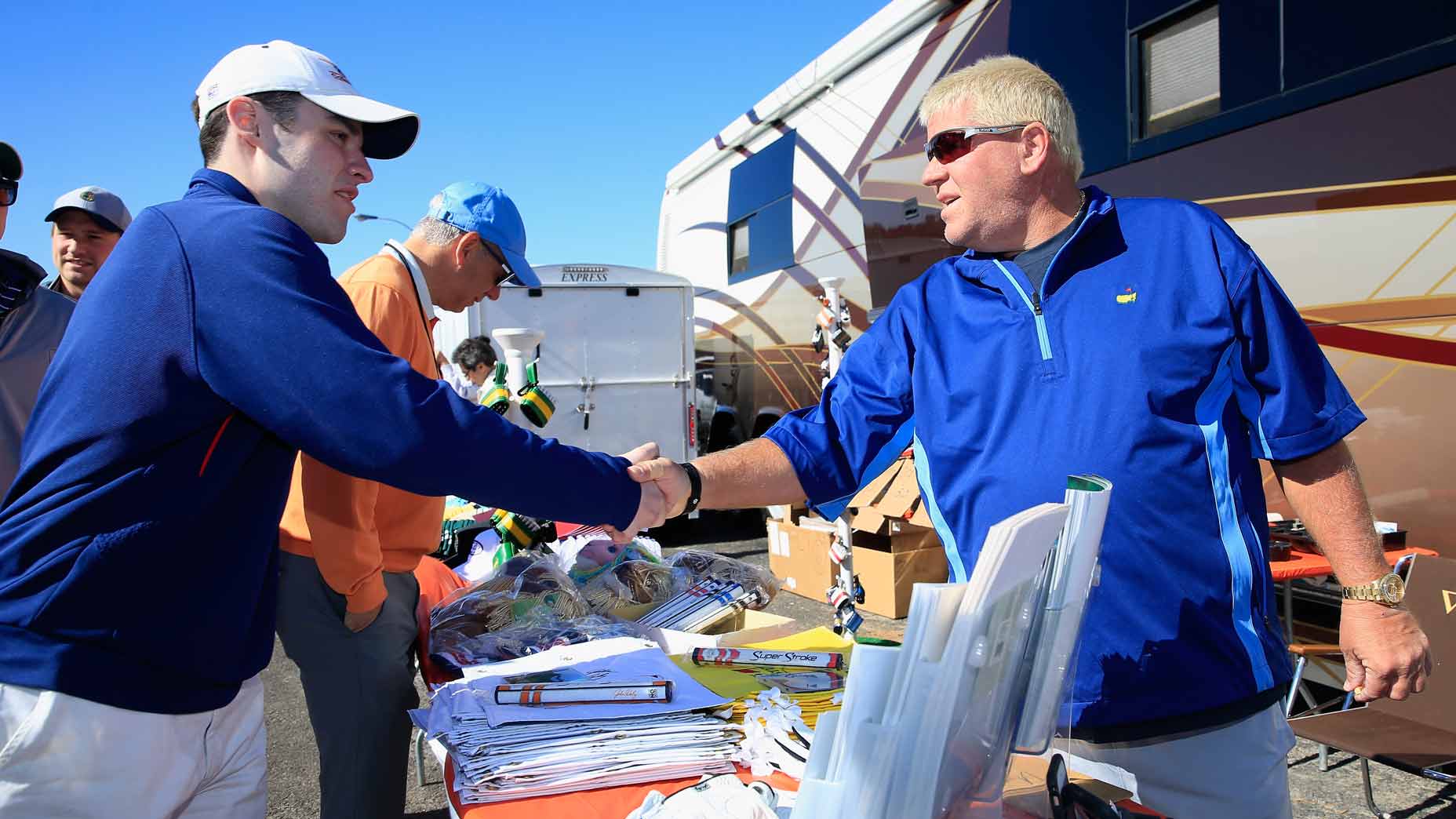AUGUSTA, Ga. — Late Friday morning, I came upon Jeff Knox at Amen Corner — a natural place to run into one of Augusta National’s many secrets.
Knox wore a light purple shirt and a navy blue hat and a navy “ANGC” belt and a pair of khakis. He looked comfortable, content, unhurried. Were it not for the clubs, he’d have been easily mistaken for a Masters attendee. And until Friday late morning, that’s exactly what he was.
Who is Jeff Knox? He’s 57, he’s Augusta National’s club champion and whenever the Masters needs a fill-in player, he serves as marker-in-residence. It’s a position he has occupied since 2003. Since then, he’s been the only person to play in the Masters without being an actual competitor — and he’s done so nearly 20 times.
Let’s run through a few of the Jeff Knox legends. In no particular order: He beat world No. 1 Rory McIlroy in 2014. He owns Augusta’s course record (from the member tees) with a 61. He aims away from the pin on No. 6 because he’s hit the flagstick so many times that he’s tired of unlucky ricochets. Kevin Kisner and Justin Thomas have said he’s the best in the world on Augusta’s greens. On Saturday in 2018 he made the only birdie on the 11th hole all day.
What does that mean? In short, that Knox has been at this a while. Rumors have swirled in recent years that he’ll be replaced in this particular role by Michael McDermott, a fortysomething Philly-area financial advisor and accomplished amateur player, but last year, when Saturday morning came around, there was Knox, teeing it up again.
We’re used to seeing Knox early Saturday and Sunday mornings, because he’s typically sent out with a single to begin the third or fourth rounds when an odd number of players make the cut. But we’ve never seen a Masters quite like this one, so it was only fitting that the marker tradition got shaken up, too, and we saw Knox on a weekday instead.
Erik van Rooyen and Sung Kang were the only twosome in the field and finished up their first round early Friday morning — but van Rooyen withdrew with an injury immediately after the round, leaving Sung Kang without a playing partner and just a short time to find one. Enter Knox.
“Hey Jeff!” one spectator called out, waving. “Did you know you were coming out?”
Knox put up one hand, showing all his fingers. “Five minutes’ notice,” he said with a grin. It’s easy to imagine him holed up in some sort of underground Augusta National bunker, waiting for the emergency marker siren to go off. But it’s more likely that Knox had his forest-green club-logoed bag handy, he was on site taking in the action and someone gave him a quick tap on the shoulder, tagging him in.
Course Rater Confidential: What should first-time Masters viewers know about Augusta National?By: Top 100 Panelists
This week, there are more reminders than ever that the Masters is held at a private club. There aren’t formally any spectators allowed on property, but members are allowed — and some guests, too. As a result, Knox seemed to know just about everyone on property. Volunteers. Onlookers. Fellow players.
He quickly made friends with Kang, who had shot three-over 75 in the opening round and came out free-swinging. They chatted on their way down the fairways, with Kang asking questions about the club and the changes Augusta has made to the course.
Soft early-week conditions made Augusta National more scorable for the pros, but for Knox it made the course play rather long. Still, he hit made par at 13 and hit one directly over the flag at 14, from which point he two-putted for par. He sauntered to the back of the 15th tee and directed his attention over to the 10th green, where Rory McIlroy’s group was just putting out. McIlroy noticed Knox on the hill and smiled. Knox gave a head nod. Game recognize game.
Despite striping one down the fairway at 15, Knox had no chance of going for the green — but what he did instead was far more impressive. He hit an iron down the fairway, leaving himself about 85 yards to a far left pin. This is one of those “hardest shots at Augusta” you hear about. Knox pulled a wedge, took his time and hit one of those perfect dead-arm wedges that skips once and zips back. This one nearly went in the hole and settled to some two feet.
The rules for Knox’s round are somewhat unclear. He walks quickly and smiles plenty but plays carefully and seriously. He generally plays out every shot, but when it might inconvenience his playing partner, he takes a backseat — like at the par-3 16th, where his tee shot kicked into the water. He left it there as Kang putted out for par and then they moved on to the next tee.
The gallery following the group grew somewhat as their round wore on. Knox waved hello to three women who joined the group on 15, then exchanged some banter with a few volunteers. The entire scene was quite convivial, with the notable exception of my presence. I asked several onlookers about Knox, and the instant it became clear I was a member of the media was given what might be called a polite cold shoulder.
Kang rallied towards the cut line around the turn, making birdies at 1, 2, 3 and 5 to climb the leaderboard. Knox served as official scorekeeper, low-key cheerleader and pleasant company. Kang bogeyed 7 but birdied 8 to get to even par for the tournament, directly on the cut line. When they putted out on No. 9 — their 18th — they exchanged air fist-bumps.
“That was a great round,” Knox said. “Way to battle back.”
I was eager to check in with Knox after the round to get a sense for his day, his mood and his awareness of his own cult hero status. Instead he vanished into the scorer’s building. I asked a media official if he’d be available for a short interview, knowing full well the answer I’d get.
“We don’t have the members talk to media about the tournament or the golf course,” one official said. Message received.
Kang went straight to lunch. Knox slipped out the back. I was left with a notebook filled with more questions than answers. In many ways, I guess that’s the point of Jeff Knox — he’s most powerful as an idea. The legend continues.


